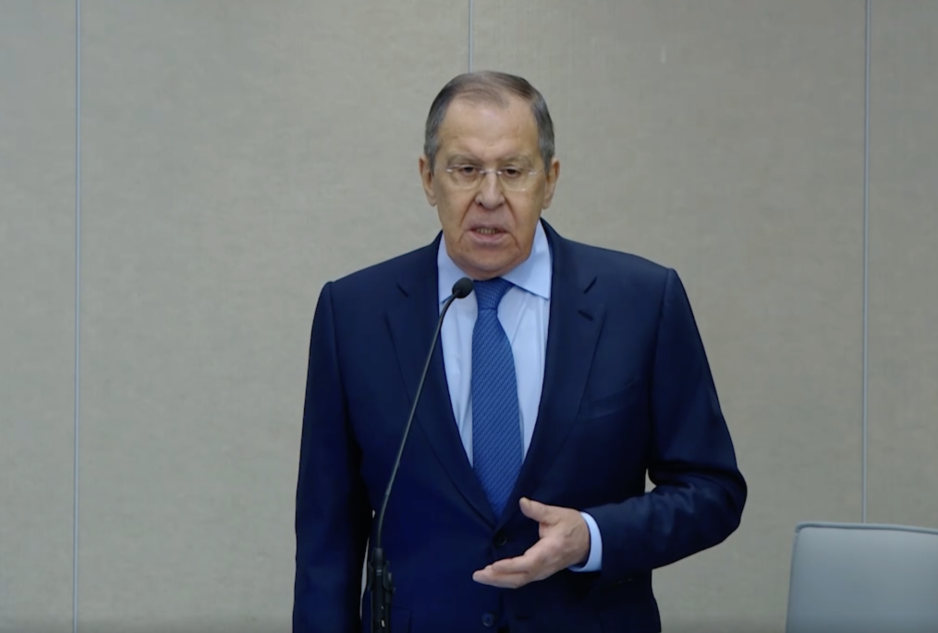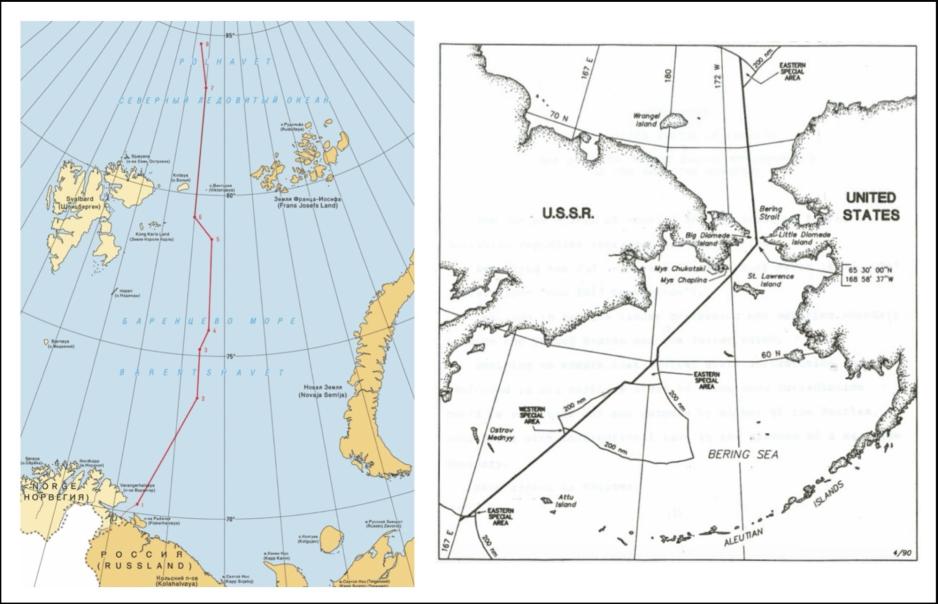Lavrov stands firm on maritime border agreements with Norway and the US

A call has been made in the Russian State Duma for the termination of agreements on maritime delimitation with Norway in the Barents Sea and the US in the Bering Sea. “One must look at the big picture,” responds MFA Sergey Lavrov, pointing to the agreements’ benefits to Russia.
On Wednesday, Russia’s MFA Sergey Lavrov gave a speech and answered questions in the State Duma, the lower house of the Federal Assembly of Russia.
Lavrov was questioned by a representative in the audience about whether it was time to reconsider a termination of Russia’s agreements with Norway and the US on maritime delimitation in the Barents and Bering Sea, respectively.
The representative, who was not named in the Russian Ministry of Foreign Affairs transcription, maintained that Russia has lost seabed areas and associated natural resources due to these agreements.
“One must look at the big picture,” responded Lavrov and continued:
“First of all, these agreements were entered into under specific conditions. Whether we like it or not, these agreements are still valid. The agreement with Norway has been ratified, and the one with the Americans is in force by agreement and is being fully implemented.”

International recognition
By extension, the Russian MFA pointed out that matters concerning the agreements have been discussed many times over a long period of time.
“There are various assessments, including those based on the positive nature of the 2010 agreement with Norway, which made it possible to expand the Russian continental shelf outside the exclusive economic zone of 200 nautical miles. In this part of the Arctic Ocean, we defended our rights in the UN Commission on the Limits of the Continental Shelf. Everyone, including Western countries, recognized these,” Lavrov maintained, who was himself present in the negotiation of the latter agreement.
Lavrov also indicated that the agreement on maritime delimitation concluded by the US and the Soviet Union in 1990 has also been beneficial. According to him, it enabled Russia to submit a claim to the continental shelf commission on a significant area in the eastern part of the Arctic Ocean without this being challenged by the US or any of the other Arctic states.

The US’ recent initiative
The representative behind the aforementioned question also claimed that the US is now disregarding established norms of maritime delimitation and that such actions is violating Russia’s national interests.
This refers to the US’ announcement in December, stating the outer limits of its continental shelf in various regions, including the Arctic.
The US Congress has yet to ratify the United Nations Convention on the Law of the Sea (UNCLOS), and Washington DC has not submitted its claim to the UN continental shelf commission (CLCS) as is the standard procedure in similar situations.
In the Duma, Lavrov stated the following about the US initiative:
“They declared it a fact and informed everyone that their seabed area would be so. The UN Commission on the Limits of the Continental Shelf will not support the initiative. It has its own procedures, which we have followed. Thanks to the patience and the scientific justification we provided, no one is questioning our application.”
“Yes, the application must be coordinated with the neighboring countries at one stage, but this is a much smaller matter. The Americans do not have such an advantage.”
Standard procedure for delimiting the continental shelf
– Delimitation of the continental shelf is regulated by the UN Convention on the Law of the Sea (UNCLOS) – the “constitution of the oceans”.
– The coastal states submit claims and documentation in the form of geological material for processing in the UN Commission on the Limits of the Continental Shelf (CLCS) in New York. It conducts strict scientific assessments of the material and presents its recommendations to the coastal state, which can then make a final delimitation.
– In the event of overlapping claims, the states involved must discuss until a solution is reached, but such negotiations can only occur after the commission has made its recommendation.
A researcher’s perspective
With the aforementioned announcement, the US seeks to bypass the Commission on the Limits of the Continental Shelf and “sends a clear message – participation in the UN Convention on the Law of the Sea can be considered burdensome and unnecessary,” writes Jan Jakub Solski in an op-ed at the Fram Center’s website.
Solski is an Associate Professor at the Norwegian Center for the for the Law of the Sea, UiT – the Arctic University of Norway,
He also points out that there have been discussions in Russia in recent times about whether the country should withdraw from the UNCLOS.
“The US’ statement is in line with international law insofar as it informs the world about the extent of its continental shelf. However, without an application to the CLCS, other states are forced to consider the credibility of the US announcement on their own,” the researcher highlights and continues:
“While it is uncertain whether Russia will withdraw its participation in the UNCLOS, the US’ practice can strengthen the arguments from nations claiming a higher moral ground in defense of international law against perceived exploitation. A response from the international community urging the US to follow the established norms would validate the significance of institutions such as the CLCS to maintain order and strengthen the Law of the Sea.”
High North News is an independent newspaper published by the High North Center at Nord University in Bodø, Norway.